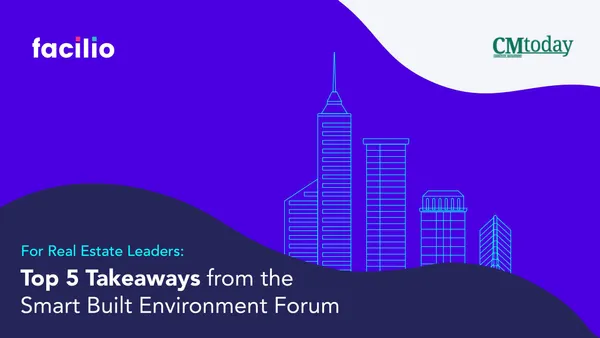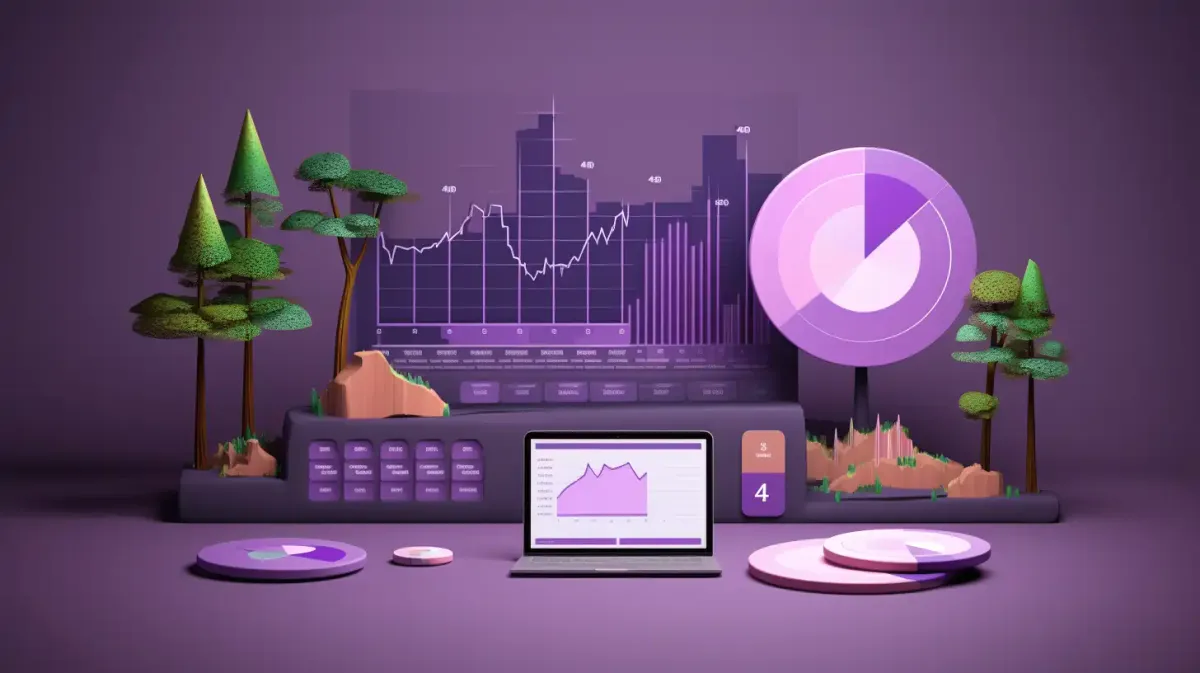
9 Best Sustainability Software to Consider in 2025
Energy costs are the second highest operational overheads, which if left unchecked, can become an unnecessary financial burden threatening your bottom line and compliance status.
The US government and its state federal agencies have enacted stringent energy regulations aimed at reducing energy consumption and carbon emissions. The pressure for managing energy efficiency and compliance is felt across all industries.
Unsurprisingly, this has made the push for sustainability a C-suite imperative.
This is where sustainability management software fits into the picture. It helps businesses to adopt technology to solve the complexities of energy efficiency management, compliance, and sustainability.
Let’s begin with understanding what sustainability management software is and why you need it.
What is sustainability management software?
It is safe to assume that the rising awareness about global climate change and the role that corporations play in arresting it has made C-suite take ESG and sustainability seriously.
Sustainability might be a single term, but it is made up of several environmental, social, and economic dimensions. These dimensions add to its complexity and also expand its scope.
Ultimately, this has led to the rise of specialized fields, each of which address specific aspects of sustainability. As a result, businesses are forced to consider various types of sustainability software that will help rein the chaos in their sustainability operations and keep a check on their environmental footprint.
As global sustainability compliance requirements rapidly evolve, staying ahead of regulatory changes becomes challenging without the right tools. Outdated technology, which often lacks real-time insights and operates in silos, can lead to inefficiencies and increased operational risks.
Centralized, artificial intelligence (AI)-, and internet of things (IoT)-driven sustainability software addresses these issues by providing real-time data and integrated processes, ensuring long-term compliance and operational efficiency.
What benefits can a sustainability management software offer?
Fundamentally, sustainability management software acts as a data management hub that enables companies to track ESG reporting, emissions data, and their related corporate sustainability efforts.
There are several benefits that a sustainability management software can provide to your business:
- Identifies opportunities to optimize energy, water, and material consumption
- Simplifies regulatory compliance while improving transparency with stakeholders
- Lowers operational costs through optimal resource management
- Mitigates environmental and social risks by proactively identifying potential issues
- Ensures reliable and precise tracking of sustainability metrics
- Inculcates a culture of organizational sustainability
- Sets the stage for long-term sustainability initiatives
While understanding the necessity of sustainability software is the first step, the real challenge lies in selecting the right solution to act as a catalyst for achieving sustainability goals.
To help make a well-informed decision, we've compiled a list of the best sustainability software in the market based on user feedback and verified online reviews.
Sustainability management software: Quick comparison
For easier comparison, here is a table that compares the top sustainability management software for the most important features.
Top 10 best sustainability software in 2025
In this section, we will provide you a balanced perspective about each software. We will help you understand what it does, what are its key features, and what its current users feel about it in terms of customer rating and reviews.
- Facilio
- Planon
- EHS Insight
- Quentic
- EnergyElephant
- SupplyShift
- SwiftCSR
- IntegrityNext
- Axiom Cloud
- Trakref
Facilio
Facilio’s Connected Buildings solution is one of the top sustainability management software that will enable your business to embed sustainability as a routine into facility management operations.
It provides real-time O&M visibility across the portfolio, enabling sustainability managers/facility managers to identify grassroot-level and portfolio-level areas for improving energy efficiency.
Further, it unifies sustainability management by providing a unified view of your portfolio’s energy consumption patterns, reining in compounded savings from across the portfolio in only weeks from deployment.
That’s right, a sustainability initiative that doesn’t demand years at length to show impact and ROI.
By unifying utility tracking, benchmarking, compliance reporting and audits, intelligent real-time monitoring, and FDD, Facilio becomes a complete toolkit to decarbonization in a single, centralized, and intuitive platform.
Thus, Facilio is a reliable ally to accelerate your decarbonization journey.
Here is how it can help:
- Visibility and monitoring: Monitor real-time performance of devices and assets to make quick, data-driven decisions.
- Analytics and insights: Enhance energy efficiency with the help of in-depth analytics of portfolio-wide energy consumption.
- Optimization: Reduce equipment downtime, improve occupant comfort, and manage facilities remotely.
With Facilio's sustainability software, you can:
- Get real-time equipment fault detection and diagnostics
- Quantify energy efficiency and savings
- Set internal and external energy efficiency benchmarks
- Enhance occupant comfort.
Get real-time fault detection and diagnostics
Facilio uses IoT sensors to collect crucial sustainability data about property equipment health and predict possible downtimes by category, end-use breakdown, comparison with baseline, and portfolio-wide benchmarking across several geographies.
This data, including carbon emission tags and energy cost projections are visualized on a dashboard for deducing real-time fault detection and preventive maintenance.
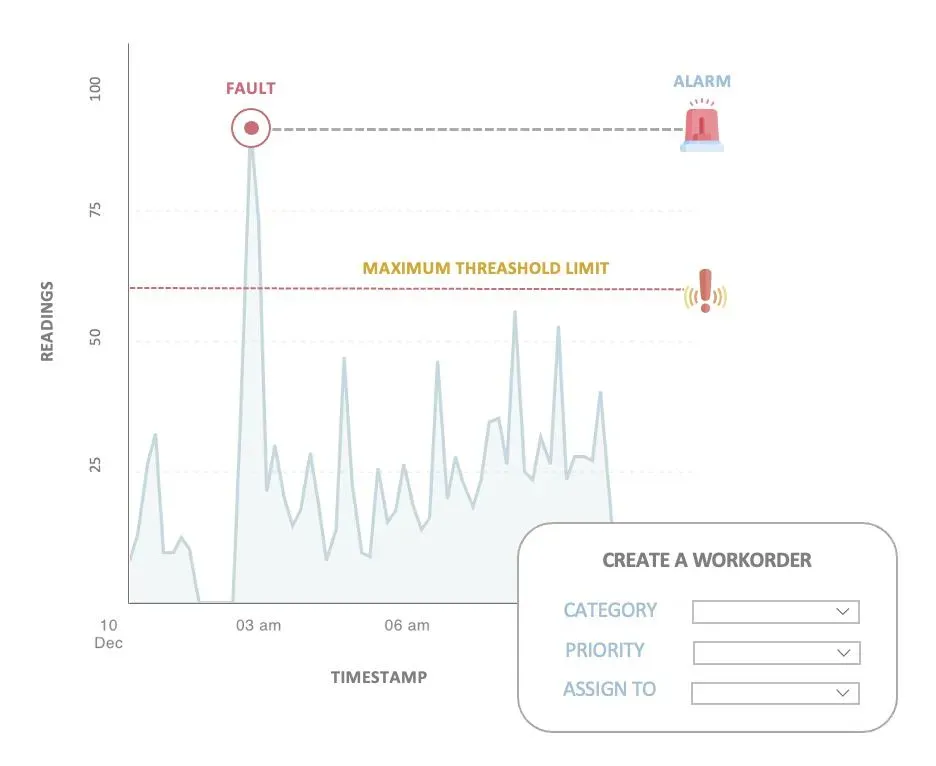
Quantify energy savings
Facilio takes a pure software approach to measurement and verification (M&V). It utilizes real-time data from connected assets to generate highly credible reports instantly. As a result, it is possible to quantify energy savings with accuracy and clarity.
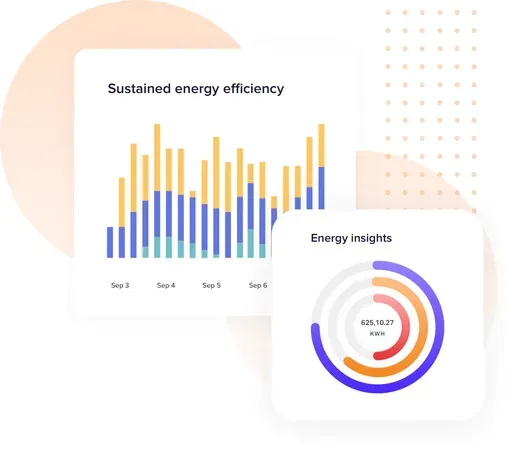
Here is what Haithem Ibraheem of ICD Brookfield Place has to say about Facilio turning around their sustainability.
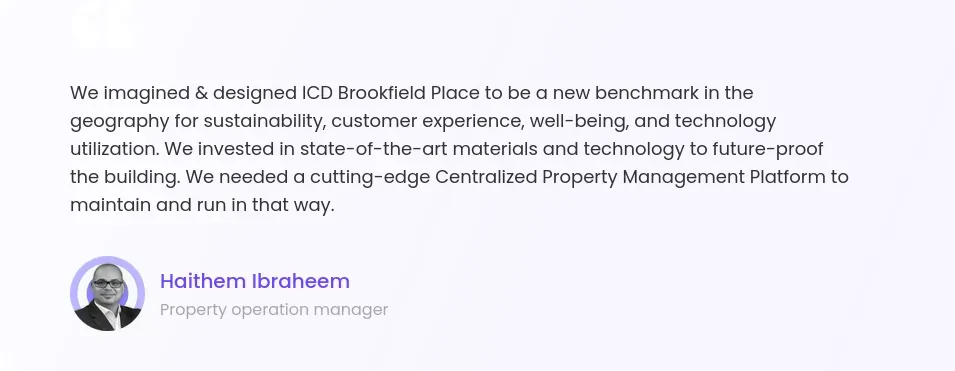
Automate building monitoring tasks
Monitoring work orders and maintenance tasks at each building of a vast real estate portfolio is cumbersome. Leveraging IoT, Facilio automates most of the building monitoring tasks and improves maintenance efficiency while reducing staff workload.
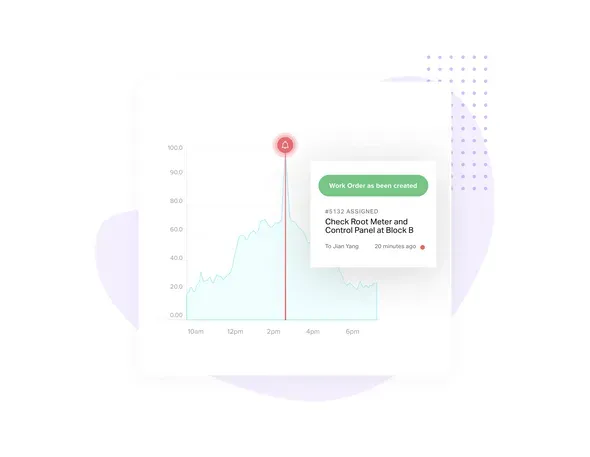
Adopt an integrated approach to property management
Security systems, energy management systems, or maintenance management systems—Facilio integrates with other building management systems\ seamlessly facilitating an integrated approach to property management.
Roi, the CEO of Tutenlabs, found Facilio to be an effective and easy-to-use software for their everyday operations.

Optimize energy costs efficiently
Facilio offers rich building data on an asset, area, and floor level to continuously optimize energy consumption and occupant comfort.
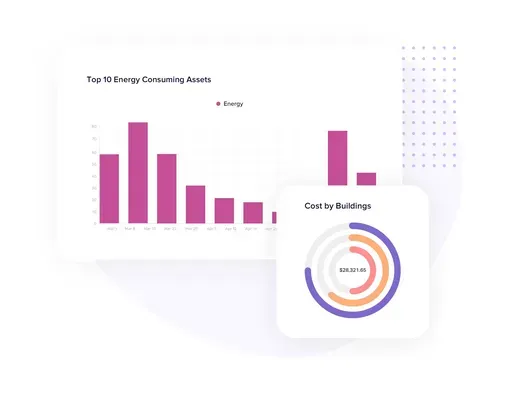
Planon
Planon is an integrated workplace management system (IWMS) designed to help organizations optimize their facilities management and sustainability practices.
The platform features a secure and reliable cloud service, high-performing IoT technology, and standardized development tools for customers and third parties.
Key features:
- Real-time monitoring and reporting of energy and resource usage
- Space and workplace management
- Maintenance management
- Sustainability compliance and certification tracking
- Data integration with various building systems
Target industries:
- Real estate
- Healthcare
- Higher education
- Corporate offices
- Government
What users like
What users don’t like
EHS Insight
EHS Insight empowers clients to monitor environmental health and safety (EHS) and quality management by offering a cloud-based solution.
It assists organizations in ensuring compliance, managing risks, and improving overall safety and sustainability performance.
Key features:
- Incident and audit management
- Environmental compliance tracking
- Risk assessment and mitigation
- Training management
- Work observations
- Quality management
Target industries:
- Manufacturing
- Construction
- Energy and utilities
- Chemicals
- Transportation and logistics
What users like
What users don’t like
Quentic
Quentic is a cloud-based platform for EHS and sustainability management. It helps in streamlining processes, ensuring compliance, and achieving sustainability goals efficiently.
Key features:
- EHS compliance and risk management
- Sustainability reporting and analytics
- Audit and inspection management
- Incident and corrective action tracking
- Integrations with other business systems
Target industries:
- Manufacturing
- Chemical
- Logistics
- Energy
- Construction
What users like
What users don’t like
EnergyElephant
EnergyElephant is an energy management software designed to help organizations reduce their carbon footprint by optimizing energy usage and improving sustainability outcomes.
It automates the verification of unit rates and helps users reduce estimated readings on energy bills. Further, it facilitates energy audits and assessments and identifies cost-saving opportunities by allowing users to compare prices with other energy suppliers based on actual usage.
Key features:
- Energy consumption tracking and analysis
- Carbon footprint calculation
- Renewable energy integration
- Customized reporting and dashboards
- Cost analysis and savings identification
Target industries:
- Education
- Healthcare
- Corporate offices
- Retail
- Government
What users like
What users don’t like
SupplyShift
SupplyShift is a supply chain sustainability management platform that enables companies to improve supplier transparency and manage supply chain risks while ensuring ethical and sustainable sourcing practices.
The solution streamlines the process of implementing sustainable procurement strategies within an organization's supply chain by providing ready-to-send assessments, built-in scoring methodologies, and pre-built analytics dashboards.
Key features:
- Supplier assessment and performance tracking
- Risk management and compliance monitoring
- Automated data collection and analysis across the supply chain
- Sustainability reporting
- Collaboration tools for suppliers and stakeholders
Target industries:
- Retail
- Consumer goods
- Manufacturing
- Food and beverage
- Electronics
What users like
What users don’t like
SwiftCSR
SwiftCSR is a corporate social responsibility (CSR) software. It is largely used by organizations to plan, manage, and report on their CSR initiatives forming part of bigger sustainability projects.
Its donation management tools, such as budget and fund allocation, donation tracking, and donation giving, enable companies to effectively plan and manage their CSR initiatives.
Key features:
- CSR project management
- Impact measurement and reporting
- Stakeholder engagement tools
- Compliance tracking
- Customizable dashboards and analytics
Target industries:
- Corporate offices
- Nonprofits
- Education
- Healthcare
- Manufacturing
What users like
What users don’t like
IntegrityNext
IntegrityNext is a supply chain sustainability and compliance management software that focuses on helping companies of all sizes ensure ethical and responsible business practices throughout their supply chains. It runs on Amazon Web Services (AWS) and hence is capable of providing fast and reliable services on a global scale.
Key features:
- Supplier risk assessment and monitoring
- Compliance and audit management
- Sustainability performance tracking
- Reporting and analytics
- Integration with procurement systems
Target industries:
- Manufacturing
- Retail
- Consumer goods
- Automotive
- Electronics
What users like
What users don’t like
Prism
Prism is a property management software from Building Engines. It helps real estate companies and their property managers to monitor, report, and improve their sustainability performance across various property management aspects.
Key features:
- Real-time sustainability data tracking
- Customizable reporting tools
- Energy and resource management
- Compliance and certification tracking
- Goal setting and performance monitoring
Target industries:
- Corporate offices
- Real estate
- Education
- Healthcare
- Manufacturing
What users like
What users don’t like
Axiom Cloud
Axiom Cloud is primarily an AI-powered refrigeration management tool that also enables organizations to achieve their sustainability goals. It offers enterprise visibility of energy efficiency and aids in predictive maintenance, early leak detection, and demand responses. It is preferred by facility managers and sustainability leaders who want to manage refrigeration and sustainability with a single unified system.
Key features:
- Sustainability tracking
- Social and community engagement tracking
- Risk management and governance
- Supplier and stakeholder engagement
- Social value impact calculator
Target industries:
- Retail
- Cloud storage
- Warehousing
- Food and beverage
- Pharmaceuticals
What users don’t like
Trakref
Trakref is yet another refrigerant tracking software that can augment your sustainability efforts. It has offerings that cater to three primary requirements: sustainability, compliance, and operations.
Key Features:
- Equipment tracking
- Automated alerts and reminders
- Reporting that meets regulatory standards
- Portfolio-wide monitoring
Target Industries:
- Office spaces
- Commercial refrigeration
- Process cooling
Key features of sustainability management software
Here are some key features that you should keep in mind while looking for a sustainability software.
Additionally, there are some specific capabilities you must look for while choosing a sustainability software.
Sustainability goal setting and tracking
An ideal sustainability management software should help in planning, documenting, and tracking sustainability goals on a periodical basis.
Compliance management
A sustainability software should not only facilitate compliance with regulatory standards but should also notify when property operations are breaching thresholds.
Audit and certification support
A sustainability management software aids in preparing and presenting all necessary compliance reports and records as mandated by various global laws and regulations.
Risk management
The use of IoT aids in predicting equipment downtime, managing regulatory compliances, or plugging revenue leaks by addressing equipment/energy consumption patterns.
Seamless integration
The ideal sustainability management software must integrate with other building management systems seamlessly. It should ensure smooth inflow and outflow of data to ensure that property management operations have a single-pane-of-glass view.
Sustainability data reporting and analytics
Sustainability management software creates and collects data from several sources, which must be analyzed to arrive at insights about how a property and its equipment are functioning and can be expected to function in the near-future.
Further, the same data also requires to be presented in the form of a report to compliance monitoring authorities and institutions on a timely basis.
Choosing the best sustainability software
To achieve sustainability, you must begin with optimizing your existing assets and their energy efficiency. This will highlight equipment that are not performing at par with energy standards while identifying opportunities to improve energy efficiency.
This can be done at four levels:
- Device level
- Site level
- Building level
- Enterprise level
Each level contributes to organizational sustainability at a higher scale and should be monitored and optimized accordingly. This makes sustainability software a must-have.
With Facilio's sustainability solution, you can:
- Get real-time visibility into energy consumption across portfolio
- Track progress towards energy savings goals and identify new opportunities
- Detect energy efficiency anomalies and take proactive steps to avoid major downtimes
- Conduct internal and external benchmarking for energy efficiency monitoring
- Perform remote equipment management and optimization
- Cover full operational life-cycle from equipment to energy performance.
FAQs
Which is the best sustainability software?
Facilio is one of the top sustainability management software that helps commercial real estate (CRE) owners to manage, control, optimize, their operations while engaging with stakeholders. Its platform-first technology integrates asset maintenance, energy optimization, and occupant experiences for holistic decarbonization. It democratizes operational data, providing unified visibility and actionable insights.
What features should I look for in sustainability tracking software?
Some of the top features that you should look for are:
- Sustainability goal setting and tracking
- Compliance management
- Audit and certification support
- Risk management
- Seamless integration
- Reporting and analytics
How does sustainability reporting software help businesses?
Sustainability reporting software helps businesses by providing tools to track, manage, and report on their environmental, social, and governance (ESG) performance. It also ensures data accuracy, simplifies compliance with regulatory requirements, enhances transparency with stakeholders, identifies areas for improvement, and supports strategic decision-making for long-term sustainability. This leads to improved resource efficiency, cost savings, risk management, and enhanced corporate brand image.
How can implementing sustainability management software benefit an organization financially?
Implementing sustainability management software can lead to significant cost savings through efficient resource management, reduced energy consumption, and minimized waste. It also helps avoid regulatory fines by ensuring compliance and can enhance brand reputation, potentially leading to increased customer loyalty and new business opportunities.
What are the key metrics to track in an ESG reporting system?
Some of the key metrics to track in an ESG reporting system include:
- Carbon emissions
- Energy and water usage
- Waste generation
- Supplier sustainability performance
- Environmental impact
More from Facilio














